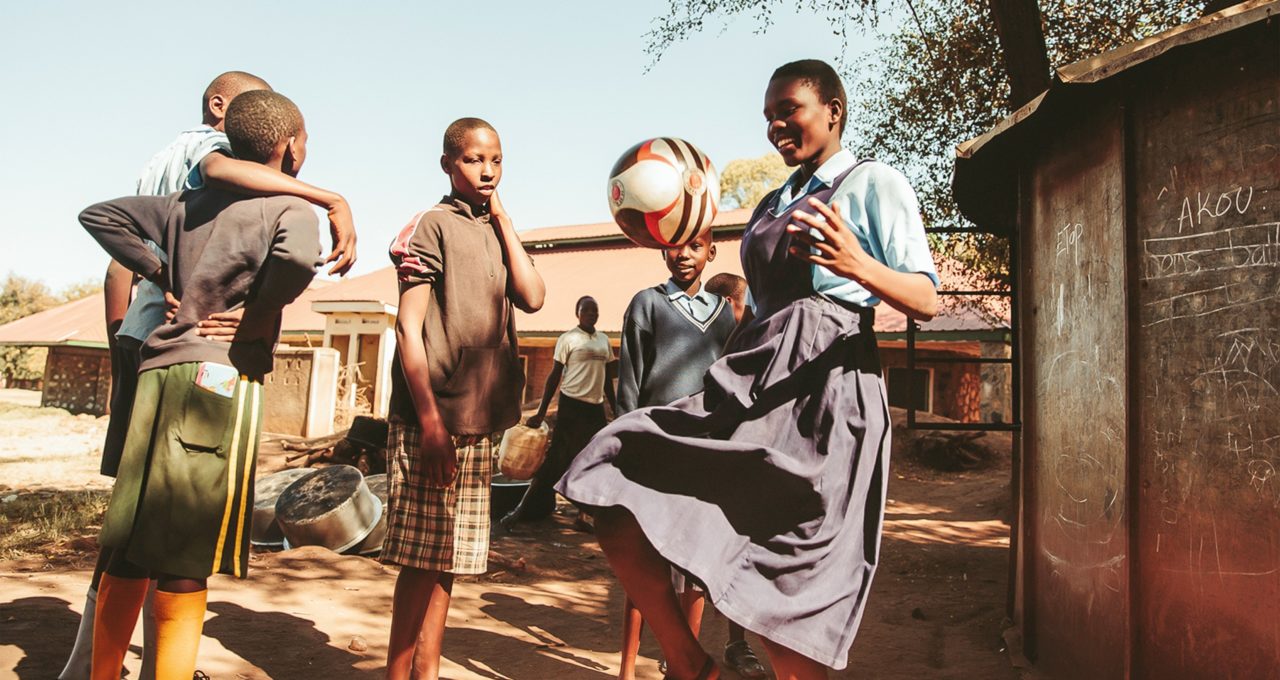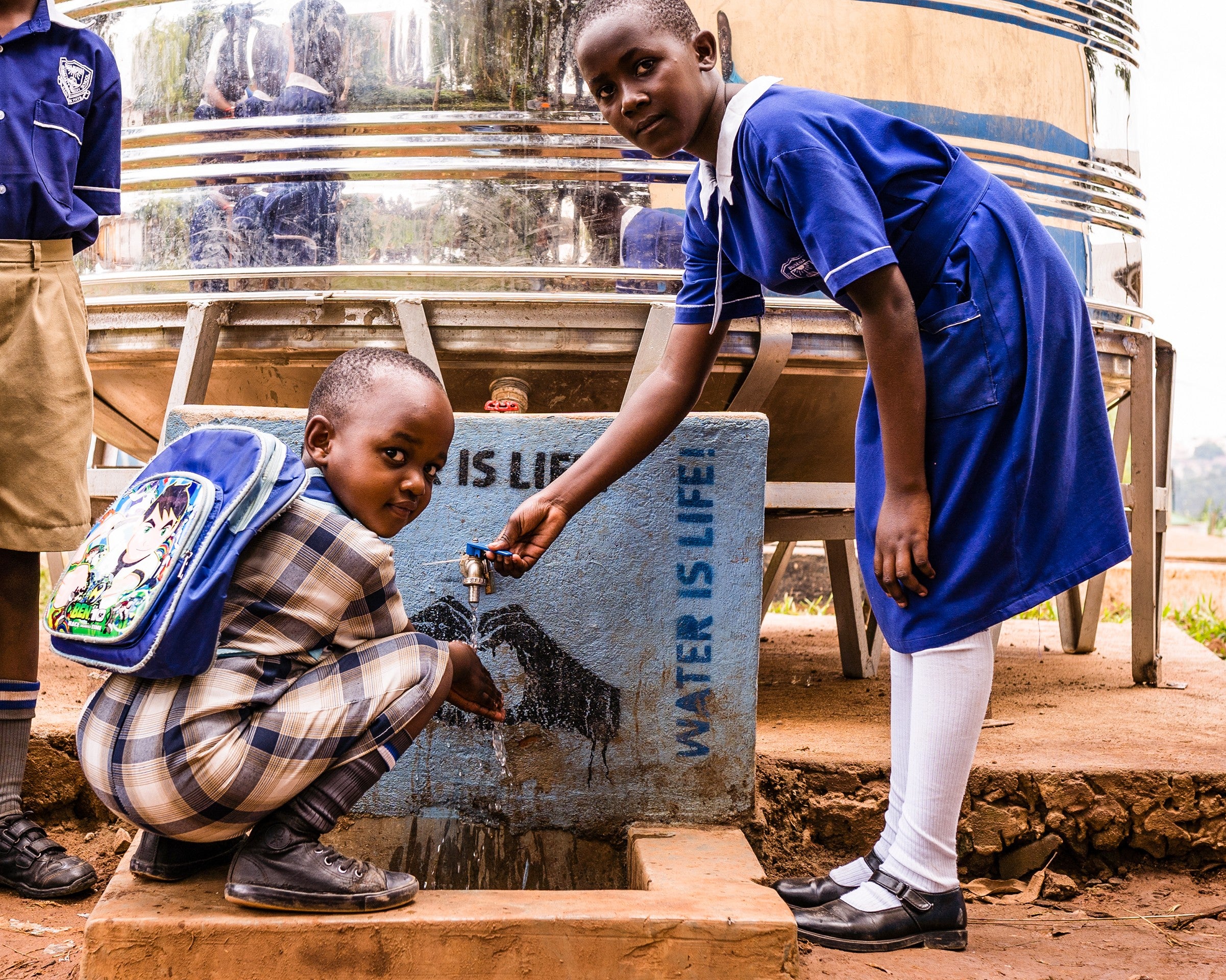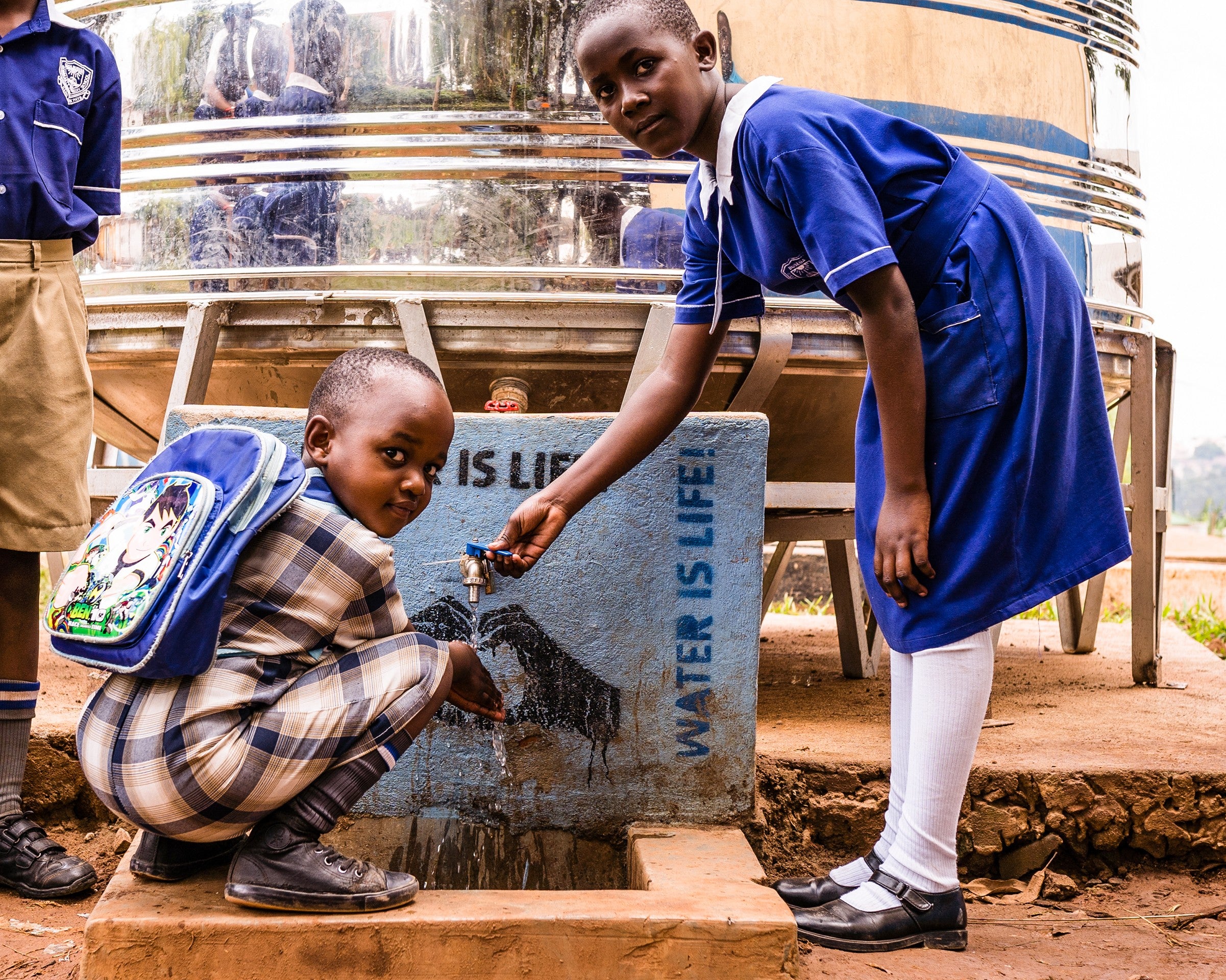Day 2
One year of access to clean drinking water for a schoolchild in Uganda
 Football4WASH – Show thirst the red card
Football4WASH – Show thirst the red card


Access to clean drinking water

need
Access to clean drinking water, sanitation and hygiene for school children in Kampala.
activity
Schools are equipped with drinking water filters and hand-washing stations. Students are motivated to behave hygienically through F4W.
Measurable performance
Number of children receiving clean drinking water.
Result
Students drink clean water and wash their hands with soap, which results in a reduction in sickness absences and an improvement in academic performance.
Systemically relevant impact
Overall improvement in the health of families and communities in Kampala. Reduction in child mortality.
background


The good deed
AboutUganda
Kampala
Capital city
45 741 000
Population
817.0
Gross domestic product
per capita per year
Rank 159 of 189
Human Development Index
(Human Development Index)


